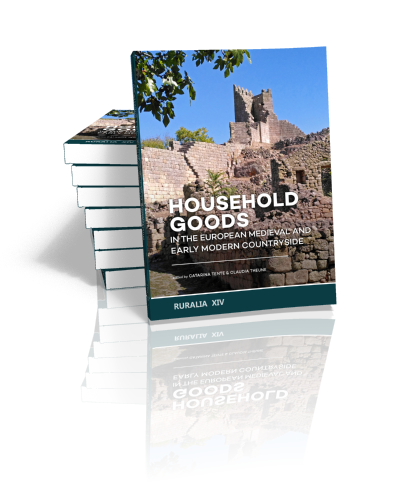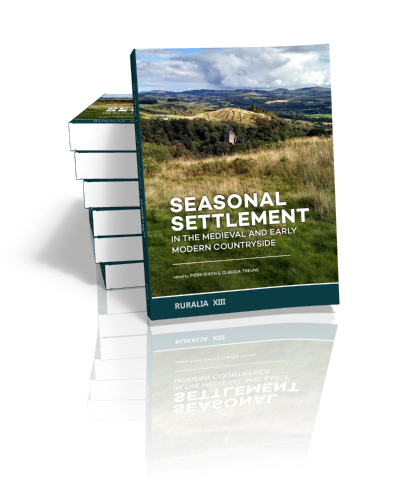RURALIA

RURALIA is an international association for the archaeology of medieval and post-medieval settlement and rural life.
The key activity of RURALIA is a conference on a specific and topical subject announced in an open call for papers. The conferences focus on current research questions and central issues in rural archaeology. It is the aim of Ruralia to strengthen the exchange of knowledge in, and the development of, archaeologically comparable studies in all participating countries, and to make archaeological results available to other disciplines. The time range of RURALIA starts with the Late Antiquity / Early Medieval Period (c. 4th c.) and includes the post-medieval /early modern period.
The conference takes place every two years in one of the participating countries. The conference language is English, abstracts will be published in German, English, French and the authors’ own language. The first Conference was held in Prague (Czech Republic) in 1995, and aimed at achieving a balanced overview of the position and tradition of rural archaeology in participating nations. Other conferences dealt with social and economic aspects of medieval rural settlement (1997), the peasant house from the migration period to the oldest still standing buildings (2001); the use of water (2003), arts and crafts in medieval rural environment (2005); marginal landscapes (2007), hierarchies (2011), agrarian technologies (2013); religion, cults and rituals (2015), transitions and transformation in medieval and early modern countryside (2017). The topic of the next conference will be about seasonal settlements (2019).
The papers have been published in edited volumes since the first conference. The presentations were published by Brepols until 2015 (Volume 1-10). We changed the publisher in 2017 (Sidestone Press), and the conference papers and the publications are now underpinned by a blind peer-review process. The volumes are available as book but also as e-book. In this way we meet the current international scientific standards.
The co-ordinating body of RURALIA is the RURALIA COMMITTEE, made up of representatives of each of the participating countries and elected members; it is led by the President and an executive committee. The association‘s first president was Jean-Marie Pesez (1929-1998), whose name the conference series now bears. The current president is Claudia Theune, Vienna (Austria).
Contact:
More information: http://ruralia2.ff.cuni.cz/
Publications and tables of contents of previous conferences are available at the following web address: http://ruralia2.ff.cuni.cz/index.php/publications/
Full list of volumes in this series
Ruralia latest volumes
Farmers’ trade and markets
Social and economic interaction in the medieval and early modern European countryside
Edited by Marie Ødegaard, Kjetil Loftsgarden & Claudia Theune | 2025
This volume brings together a series of case studies on the social and economic interaction and organisation in the medieval and early modern European countryside. In particular, it focuses on rural and smaller trade and…
Household goods in the European Medieval and Early Modern Countryside
Edited by Catarina Tente and Claudia Theune | 2023
Although household goods are a well-establish topic in Medieval and Early Modern archaeology, more recent research is overcoming simple typological and technological aspects and pointing to broader approaches, which relates to the understanding of goods’…
Seasonal Settlement in the Medieval and Early Modern Countryside
Edited by Piers Dixon & Claudia Theune | 2021
For the first time seasonality is placed at the centre of the study of rural settlement. Using a Europe-wide approach, it provides a primer of examples, of techniques and of ideas for the identification and…








